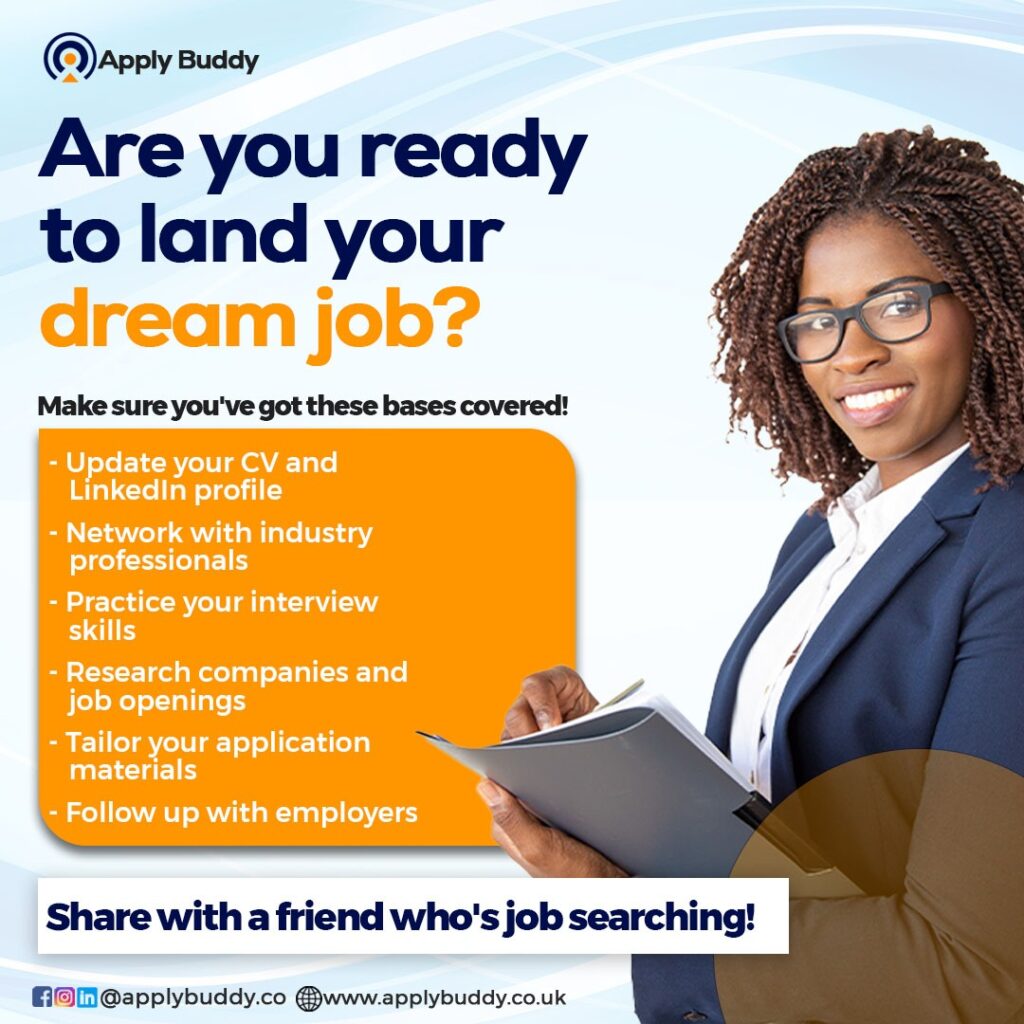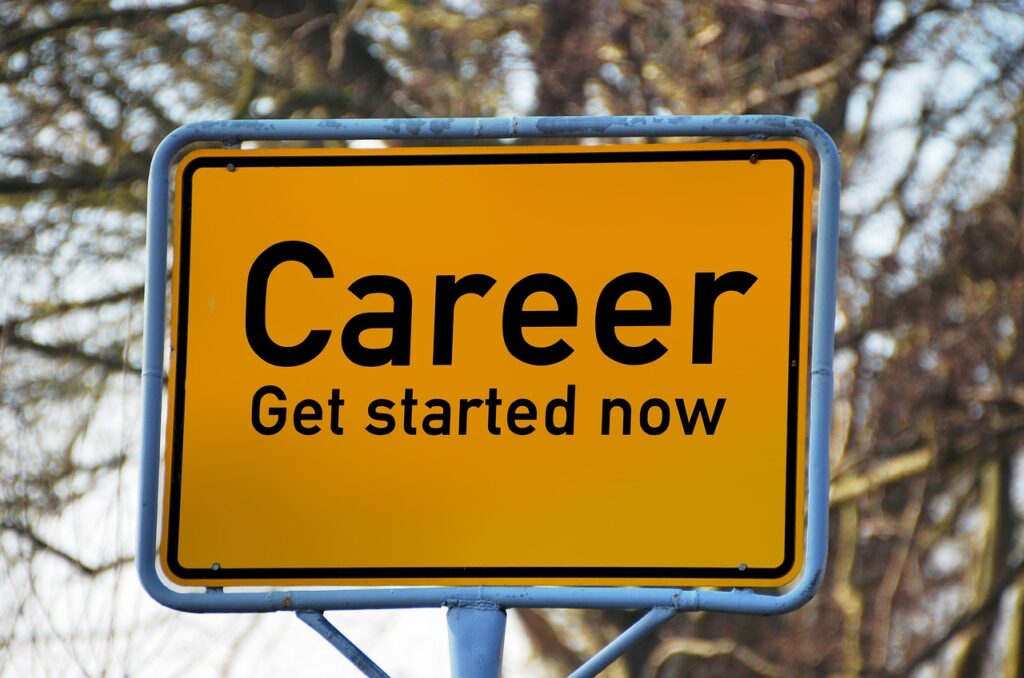Did you know you may be on the wrong career path and making mistakes that could cost you a satisfying retirement? This is why you need career counselling. Why career counseling is important in today’s rapidly changing job scene can’t be overstated. Look: navigating career choices can be tricky, and feeling lost in the sea of options is something we’ve all experienced. But here’s the deal: the modern job market moves fast, and it’s easy to feel unsure about your next step, whether you’re a mid-career professional considering a change or a job seeker ready to progress.
This is where career counselling becomes an essential tool—not just for those starting out, but for anyone wanting to make smart, strategic decisions.
But you may be wondering, what does career counselling involve? Good question. It’s not just a checklist of skills and job roles. It’s a tailored process involving deep discussions, personalised assessments, and actionable advice that looks at your immediate and future goals.
But wait, there’s more. The benefits of career counselling range from improved decision-making skills to enhanced confidence. Career counsellors offer career guidance backed by proven strategies, helping you explore options you may not have considered.
The importance of career counselling becomes evident when you realise that a well-mapped-out career path can make the difference between feeling stuck and thriving in your profession. The bottom line? It serves as a beacon of support, guiding you through challenges while equipping you with the tools and knowledge to make informed decisions. And you know what? It’s easier than you think to take that first step towards clarity.
Also Read: How to Identify Your Career Goals and Find a Fulfilling Path
Understanding Career Counseling
Let’s face it: making career decisions can be tough. Whether you’re mid-career, looking to make a change, or just starting out, the path forward isn’t always clear. This is where career counselling steps in to bridge the gap between uncertainty and confidence.
So, what does career counselling really do? At its core, it’s about helping you understand your strengths, interests, and goals while identifying the best way to achieve them. It’s not just about finding “a job”; it’s about uncovering the right job for you.
The benefits of career counselling are vast. It sharpens your decision-making skills, boosts your confidence, and provides a fresh perspective on available opportunities. Career guidance from a trained professional ensures you’re not just taking a step but taking the right step. It’s like having a GPS for your career journey—one that helps you navigate industry trends, emerging roles, and market demands.
What Is Career Counseling?
Let’s cut to the chase: career counselling is more than just discussing your job options. It’s a process designed to give you clarity, direction, and purpose in your professional life. Think of it as having a trusted guide who helps you navigate the complex and often overwhelming landscape of career decisions.
But what exactly does career counselling mean? Simply put, it’s the art (and science) of matching your skills, interests, and values with the opportunities that best fit you. Whether you’re trying to climb the corporate ladder, pivot to a new industry, or just find fulfilment in your work, career counselling offers the insights and strategies to make that happen.
Here’s why it’s so impactful: a good career counsellor doesn’t just hand you a list of job titles. Instead, they work with you to identify what drives you, what skills you can leverage, and how to navigate challenges in your chosen path. And best of all, they provide actionable advice that sets you up for long-term success.
How Career Counseling Works
So, how exactly does career counseling work? It’s all about helping you find clarity and direction in your career. Here’s how the process typically unfolds:
- Initial Assessment
The process starts with a deep dive into your skills, experiences, and interests. This helps the counsellor understand your strengths and where you’re currently at in your career. - Exploring Career Options
Once your background is clear, the counsellor helps you explore various career paths that align with your abilities and goals. It’s about opening your eyes to possibilities you might not have considered before. - Setting Goals & Action Plan
After identifying potential career options, you’ll work together to set clear, actionable goals. This might include updating your CV, gaining new skills, or targeting specific job roles or industries. - Follow-Up
Career counselling isn’t a one-off conversation. You’ll have regular follow-ups to track your progress, tweak your plan if needed, and stay on the right path.
Career Counseling Methods
Career counsellors use a variety of methods to guide you:
- Assessments
Personality tests or skills assessments help identify your strengths and preferences. This can give you clarity on which roles or industries fit you best. - Guided Conversations
These one-on-one discussions help you reflect on what you want in your career. It’s not just about asking the right questions but also giving you space to think deeply about your future. - Skill Gap Analysis
If you’re thinking of changing careers or advancing in your field, the counsellor will help you assess any skill gaps you need to fill. This might involve additional training or professional development.

The Importance of Career Counseling for Career Planning
Career planning can feel overwhelming, especially if you’re unsure about your next move or how to get there. That’s where career counseling comes in—it provides a structured approach to career development, helping you define a clear path forward.
Career counseling isn’t just about finding any job; it’s about finding the right job that aligns with your values, strengths, and goals. With the right guidance, you can map out your career in a way that feels purposeful and rewarding.
By having a structured plan, you’re not just wandering through your career—you’re actively working towards something meaningful.
Also Read: How To Identify Your Transferable Skills
Clarifying Career Goals and Ambitions
One of the most valuable aspects of career counseling is how it helps you define and prioritise your career goals. Getting lost in the hustle of daily tasks is easy, but career counselling offers a fresh perspective on what you truly want to achieve.
Through conversations and assessments, you’ll identify what’s most important to you in your career: work-life balance, leadership opportunities, or a specific role. Career counselling isn’t just about setting goals—it’s about setting the right goals that align with your ambitions.
Identifying Strengths and Areas for Improvement
Another key benefit of career counseling is evaluating your personal strengths and identifying areas for improvement. We all have strengths, but sometimes we don’t know how to leverage them fully. Career counseling helps you assess your abilities and pinpoint where you excel, allowing you to focus on roles that match your skill set.
But that’s not all—career counseling also helps you uncover skill gaps. Whether you need further training or experience in a specific area, the process helps you develop a plan for filling those gaps. It’s about taking stock of where you are and making sure you’re ready for where you want to go.
By knowing your strengths and areas for improvement, you’ll be in a much stronger position to make informed decisions and tackle challenges head-on.
Exploring Career Options and Pathways
One of the most exciting aspects of career counseling is how it opens up a variety of career options that you may not have considered before. Often, we get stuck thinking about just one or two potential career paths, but career counseling helps broaden your perspective.
With the help of a counselor, you’ll explore different career pathways that match your skills, interests, and values. Whether it’s a shift in industry, a different role, or even going back to school for new qualifications, career counseling allows you to weigh all your options with clarity.
It’s about exploring job options in a way that empowers you to make informed decisions rather than feeling limited by what you already know.
Also Read: How to Use a Recruitment Agency to Find a Job
Benefits of Career Counseling for Job Seekers
Job seekers often face many challenges, but career counseling offers tailored support to help you navigate these obstacles:
- Refining Your CV
Get expert advice on how to present your experience and skills in the most appealing way to employers. - Improving Interview Skills
Learn techniques to feel confident and make a great impression during job interviews. - Effective Job Search Strategies
Discover the most efficient ways to find job opportunities, from online resources to networking tips. - Career Transition Support
If you’re shifting careers, a counsellor can help identify transferable skills and chart a path for a smooth transition.
Building a Strong CV and Cover Letter
A standout CV and cover letter are essential for making a good first impression, and career counseling can guide you through the process of creating both. Counselors will help you focus on your achievements, relevant skills, and experiences that directly align with the job you’re applying for, ensuring your application materials speak directly to what employers are looking for.
- CV Writing Help
A career counselor will show you how to structure your CV so it’s easy to read, highlights your most important achievements, and makes you stand out in a competitive field. You’ll learn how to tailor your CV for specific industries or roles and what to include to grab attention quickly. - Cover Letter Tips
Your cover letter gives you a chance to show your personality and motivation for applying. With expert guidance, you can learn how to personalise each cover letter for different jobs, demonstrating why you’re the perfect fit for the role. A strong cover letter also helps you explain any career gaps or transitions, making your application more compelling. - Job Application Support
Career counseling provides ongoing support as you apply to different jobs. You’ll receive advice on how to target specific job postings, write compelling introductions, and how to make your application stand out in a crowded pool.
With the right guidance, your CV and cover letter will help you make a lasting impression and get noticed by hiring managers.

Boosting Your Job Search with ApplyBuddy
Job searching can be overwhelming, but ApplyBuddy simplifies the process, helping you craft standout CVs and compelling cover letters and optimise your LinkedIn profile. With tailored templates and expert tips, you’ll learn how to highlight your achievements, structure your content effectively, and create application materials that align with specific roles or industries. ApplyBuddy ensures your CV and cover letters not only grab attention but also reflect your unique skills and motivations, making each application personalised and impactful.
Beyond writing, ApplyBuddy supports you in navigating the entire job application process. Plus, with LinkedIn optimisation tips, you can position yourself as a strong candidate in your field. Whether you’re starting your job hunt or refining your approach, ApplyBuddy equips you with the tools to stand out and land your next opportunity.
Also Read: How to Craft a Compelling Cover Letter That Shows Your Passion
Preparing for Job Interviews
Job interviews are often the final hurdle in landing a new job, and career counseling prepares you to confidently navigate them. Beyond just practicing answers to common questions, career counseling delves into strategies that will help you communicate effectively, manage anxiety, and feel prepared for anything the interviewer throws your way.
- Interview Preparation
Career counselors will help you understand what employers are looking for and how to tailor your responses to highlight your relevant skills and experience. You’ll practise answering questions in a way that demonstrates your strengths, and you’ll be coached on how to handle difficult questions with ease. - Job Interview Coaching
Mock interviews, role-playing, and feedback are integral parts of interview coaching. Counselors will offer constructive feedback to help you fine-tune your responses, body language, and overall presentation. You’ll also learn tips on how to manage nervousness, project confidence, and build rapport with interviewers, which can greatly increase your chances of success. - Building Career Confidence
One of the most valuable benefits of interview coaching is boosting your confidence. With personalised coaching and feedback, you’ll approach interviews with a clear mindset, knowing exactly how to present yourself. This confidence can be a game-changer, allowing you to communicate more effectively and make a lasting impression.

Long-Term Impact of Career Counseling
The long-term impact of career counseling is profound because it not only helps you navigate your current job situation but also shapes the future of your career. Through personalised advice and strategies, career counseling gives you the clarity and tools to make decisions that lead to professional growth, personal fulfillment, and long-term success.
When you’re clear on your career goals and how they align with your values, you make decisions that help you thrive both in your professional and personal life. Career counseling helps you to set these long-term goals and gives you a solid plan to achieve them, allowing you to build a career that you’ll be proud of and that meets your life objectives.
The counseling process is not a one-off fix; it’s about laying a strong foundation for your career’s evolution, helping you remain adaptable and focused on achieving long-term success and happiness in your career.
Developing a Sustainable Career Path
When most people think of career success, they often focus on quick promotions, salary increases, or short-term milestones. However, true career success is about building a path that is sustainable, where you can grow and adapt over time, without feeling burnt out or disconnected from your personal values. Career counseling helps you avoid the trap of short-term thinking and focuses on strategies that foster long-term satisfaction and growth.
- Sustainable Career Growth
Sustainable career growth means setting realistic expectations and working towards goals that not only help you move up in your career but also maintain a healthy balance with your personal life. A counselor helps you avoid overexerting yourself in roles or paths that may seem lucrative in the short term but ultimately lead to stress or burnout. They help you see the bigger picture and build a career trajectory that allows for continuous growth, well-being, and fulfillment. - Career Alignment with Personal Values
Your career choices should reflect your core values—what truly matters to you as a person. When your work aligns with your values, you’re more likely to stay motivated, perform better, and experience greater satisfaction. Career counseling helps you identify and understand these values, whether it’s flexibility, creativity, helping others, or contributing to a greater cause, so that you can find a career that truly resonates with you. - Values-Based Career Development
Values-based career development ensures that your career choices reflect your broader life goals and principles. Career counseling encourages you to think about how your work aligns with the life you want to lead, whether that’s in terms of making an impact, having a sense of purpose, or maintaining a certain work-life balance.
Increased Job Satisfaction and Fulfillment
Career counseling plays a crucial role in ensuring that you find work that provides not just a paycheck, but a sense of fulfillment and job satisfaction. When your career aligns with your passions, skills, and life goals, you’re more likely to enjoy the work you do, feel a sense of accomplishment, and experience greater overall happiness.
- Career Satisfaction
A counselor helps you identify the factors that bring you satisfaction in a job, whether it’s creative freedom, opportunities for advancement, or meaningful work. With their support, you’ll be better equipped to find a role that provides a sense of purpose. - Fulfilling Work
Career counseling encourages you to seek positions that provide not just financial rewards but also intellectual and emotional fulfilment. It helps you make decisions that lead to work that excites you and feels rewarding on a deeper level. - Job Happiness
The satisfaction you get from meaningful work significantly impacts your overall happiness. Career counseling enables you to identify career options where you’ll feel more motivated, less stressed, and more likely to achieve a healthy work-life balance.
In the long run, career counseling sets you on a path to work that you enjoy and find meaningful, which significantly enhances job satisfaction and overall well-being.
See Also: Why Career Progression is Important
Building Adaptability in a Changing Job Market
The job market is constantly evolving, with new technologies and trends reshaping industries. Career counseling helps you build adaptability, enabling you to thrive amid change.
- Career Adaptability
Career adaptability is the ability to adjust to shifts in the job market. Counselors help you develop a flexible mindset, ensuring you’re prepared for new challenges and opportunities. - Evolving Job Market
With industries constantly changing, career counseling helps you identify growth areas and align your skills with emerging opportunities, keeping you ahead of the curve. - Future-Proofing Your Career
Future-proofing means staying relevant in a fast-paced world. Counselors guide you in building versatile skills that will remain valuable, ensuring your career is prepared for the future.

How to Find a Career Counselor
Finding the right career counselor is an important step in your career development journey. A professional career counselor can provide the guidance and support needed to navigate your career path. Here’s how you can find one that suits your needs. optimise optimise
Choosing the Right Career Counselor
When selecting a career counselor, it’s essential to consider their qualifications, experience, and approach to counseling. Look for a counselor who has a strong background in career development and relevant certifications. It’s also important to choose someone who aligns with your career goals, whether you’re looking to explore new opportunities or transition into a different field. Don’t hesitate to ask about their previous experience and success stories, as these can give you confidence in their ability to help you.
- Look for credentials: Ensure they have certifications from recognised career coaching bodies.
- Consider specialisation: Choose a counselor who specialises in the area you need help with, whether it’s job search strategies, career change, or skill development.
- Compatibility matters: Choose someone you feel comfortable with, as career counseling requires open and honest conversations.
Also Read: How to Talk About Your Skills in an Interview
What to Expect from Career Counseling Sessions
Career counseling sessions are structured to help you gain clarity on your career goals and develop actionable steps towards achieving them. Here’s what you can expect during your sessions:
- Initial Assessment: The counselor will likely begin by understanding your background, career goals, and any challenges you’re facing. This may involve taking assessments to evaluate your skills, interests, and values.
- Goal Setting: Based on the initial discussions, the counselor will help you set clear and realistic career goals.
- Action Plan: The counselor will work with you to develop an action plan that includes strategies for job searching, skill development, and career advancement.
- Ongoing Support: Career counseling may involve regular check-ins to assess your progress, adjust your plan, and provide additional guidance.
Conclusion
Career counseling plays a crucial role in personal and professional development, providing valuable guidance for individuals at all stages of their career. Whether you’re just starting out, seeking a career change, or aiming for career advancement, a career counselor can offer tailored support to help you navigate challenges, set clear goals, and ultimately achieve success. The insights gained from career counseling can provide a sense of direction, build confidence, and ensure that you’re making informed decisions about your career path.
From clarifying your goals to developing essential skills, career counseling is an investment in long-term career growth. So, if you’re feeling uncertain or stuck in your career, seeking professional guidance could be the step you need to take to move forward with clarity and purpose.
FAQs
What are the main benefits of career counseling?
Career counseling helps you identify your strengths, set clear goals, explore career options, and develop strategies for career advancement. It provides personalised guidance that can enhance job satisfaction, career development, and adaptability in a changing job market.
How can career counseling help with a career change? Career counseling helps you evaluate your transferable skills, explore new career paths, and develop a step-by-step plan for the transition. A counselor provides support in overcoming challenges and ensures you are well-prepared for the change.
What should I expect during a career counseling session? During a career counseling session, you can expect an assessment of your skills, interests, and goals, followed by advice on how to achieve those goals. A structured action plan is often created, with follow-up support to monitor your progress.
Is career counseling worth it for experienced professionals? Absolutely! Even experienced professionals can benefit from career counseling, whether they’re seeking to advance in their current field, transition to a new role, or navigate shifts in the job market. A counselor can provide valuable insights to help you reach your next career milestone.
